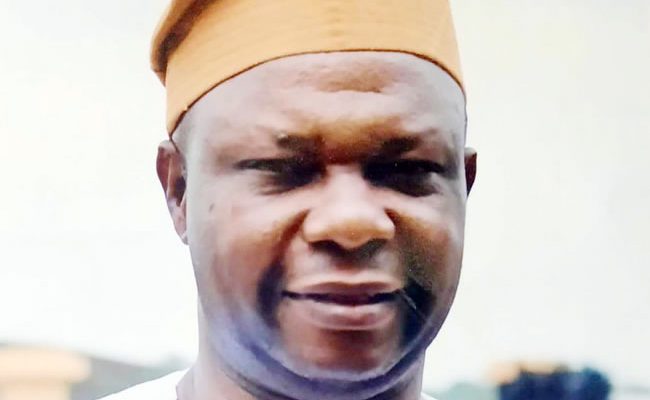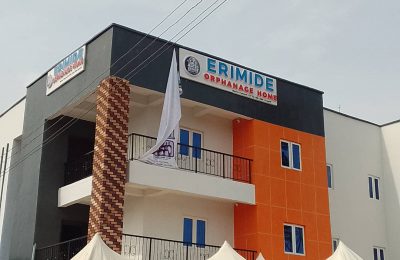

THE Yoruba say you can’t pray for long life and at the same time pray not to have challenges. You have to choose one.
For the Nigerian Tribune that is celebrating 75 years of its founding today, its eyes have seen red, blue and black, daunting moments. Not even a diviner could have foretold that it would not die. It will appear that as the raging storm and whirlwind blew, the newspaper was the proverbial gbegi (stubborn grass) that a storm could not blow off its feet (Iji o ni ja wu gbegi ni’le).

Tribune’s issues with the colonial authorities started as soon as it hit the newsstand. History is replete with its anti-colonial and pro-people actions against the government for which it suffered as a corporate entity. Its staff also suffered harassment. That was the situation through the 1950s till independence.
Beginning from 1963, the Tribune newspaper faced an endless regime of violence visited on it at the whim of the runners of government at the regional level. Persecution, discrimination, intimidation, and litigations designed to cripple it economically and wind up its overall operations were woven for it. In an editorial it titled Living on immorality (March 7, 1963), the Tribune had said that, due to the publication of its editor, Ayo Ojewumi’s Pen Atlanta column which commented on the alarming increase in the rate of females “who live on immoral earnings,” repeated police visits to the office of the Tribune were undertaken three times in 48 hours.
In September, 1964, the federal and Western governments passed the Newspaper (Amendment) Act of 1964, which states, to wit, “Where a person…publishes or reproduces or circulates in a newspaper any false report which he knows or reasonably ought to know to be false, or where such a person publishes or reproduces or circulates in a newspaper such statement or report, without due regard being first had as to its truth, falsity, he shall be guilty of an offence and liable, upon conviction, in the case of; (a) a corporation, to a fine of not less than 500 pounds;(b) any other person, to imprisonment of not less than 12 months (subsequently reduced to six months) or more than three years.”
This incensed the Tribune which came out with another editorial. It said that it would, among other things, “damn the obnoxious laws calculated to deny Nigerians of their hard-won freedom… The principle embodied in the Declaration of the Republic is the right of a people to revolt against tyranny, and we will fight to the finish in defence of our fatherland and our birthright” (December 14, 1964).
On February 5, 1964, a Tribune reporter, Mr. Adetunji Adeoye, was arrested by the police and was immediately charged for wandering at the Premier’s Lodge at Iyaganku, Ibadan. He had in fact gone to the Lodge to cover the special meeting of the Egbe Omo Olofin, the cultural counter-poise to the Egbe Omo Oduduwa, formed by the premier, Chief S. L. A. Akintola to finally sound the knell on the Awolowo political group. Tribune had visited very scathing criticism on the founding of the rival organization and it was thus predictable that the Premier would view any impending report on the budding organization by the Tribune as an adversarial report. The charge could however not stand as the police eventually withdrew it from the court.
One long-drawn strain and intimidation on the newspaper was the trial and imprisonment of its editor, Mr. Ayo Ojewumi. The newspaper, on its own, most times in conjunction with Ojewumi, was slammed sedition charges and on some occasions, ordered to pay fines. Some of the charges had not been resolved as at the time of the collapse of the republic.
The sedition charge against Ojewumi was however concluded. Charged for seditious publication of the leader entitled Where do we go from here? (April 16, 1964), the editor was immediately detained by the police. The editorial comment contained one of the newspaper’s most mordant strictures ever. It called government actions “awful, stinking, disgraceful and ugly,” and accused it of “reckless squandermania and abuse of office,” alleging in the same mould that ministers in the Akintola government, including the Minister of Agriculture, were deploying government farm equipment “to plough their fields.” Also on the editorial’s allegations was that ministers, numbering over 50, collected £1000 and £3000 respectively in bonuses during the Republic and Christmas day celebrations. It also accused the Premier of hiring an Apala musician for personal fancy, at the public expense, for £20 a day, during the census celebration.
The newspaper used the example of the establishment of the government-owned Sketch which it called a ‘drain-pipe’, as well as the proliferation of boards which it termed governmental leech-routes in the Akintola government as its allegation of squandermania. It reported further: “Never in the history of the region have there been so many corporation and board chairmen. The number of Executive Directors are as many as the number of civil servants working in these corporations, all in order to find jobs for the good boys when the majority of our people are facing unprecedented abject poverty” (April 16, 1964, Where do we go from here?).
This provoked the ire of the Akintola government which ordered the police to swing into action. This later generated a one-count sedition charge against the editor who, upon a raid of the newspaper and the discovery of the manuscript of the editorial, had been found to be the direct writer of the offending editorial. On October 16, 1964, the judge in the case, Justice Atanda Fatayi-Williams of the Ibadan High Court, sentenced Ojewumi to a prison term of six months, as well as imposed a fine of £500 on the Tribune. In the judgment, Fatayi-Williams held that the editorial in question was “an action calculated to bring the Western Nigerian Government into hatred and ridicule,” stating that “the editorial comment goes beyond the scope of fair comment because it was not intended merely to point out the errors of the government.” He also pilloried Ojewumi for acting to the gallery by reciting memorized phrases aimed at hoodwinking his press colleagues during the trial.
Another firebrand journalist, Folarin Adeeko, alias Taku Onibaje, was immediately appointed acting editor of the newspaper but the bite and sting that the Tribune had scooped as its acclaim, which led to the sarcastic reference to it as tetebuyon (quick to cast aspersion), had waned considerably.
During the process of Ojewumi’s sojourn at the Agodi Prisons where he served his term, an appeal against Fatayi-Williams’ ruling which led to the editor’s conviction was filed at the Supreme Court. On January 15, 1965, the court upheld the judgment of the lower court. In the judgment, read by Justice Lionel Brett, the court held that contrary to Ojewumi’s counsel’s claim that he was merely reviewing the charges against Akintola in the parliament, he had considerably amplified and embellished the charges with abusive and scurrilous epithets. Brent concluded: “We have considered the wording of the article as a whole and the evidence about how it came to be written, and we are satisfied that the trial judge was right in holding it to be seditious.”
On February 16, 1965, Ojewumi finished his prison term and displayed the same uncompromising mien and attitude that were his trademark before he was jailed. The Tribune, the Zikist Movement, Okpara Youths Brigade and the AG held an elaborate party to celebrate his return at the party’s headquarters in Ibadan. The story of the celebration was promoted in the newspaper.
In a banner headline entitled It’s a hero’s welcome for Editor ‘Prison Graduate,’ elaborate photographs of Ojewumi were splashed on pages of the newspaper wearing a dashiki which the AG Youth Association, according to the Tribune report of the day, called a “prison graduate dress won by veteran nationalists like Dr. Kwame Nkrumah, President of Ghana in those colonial days when he came out of prison”( February 18, 1965).
When humorously and sarcastically asked, using the title of the leader that led him to jail: “where do we go from here?” as he left the gate of the prison, Ojewumi had said: “Back to the battlefield…That some of us protest while the others unconcernedly watch their fellowmen suffer unnecessarily is a pointer to the fact that we look at life from different angles and our sense of responsibility towards our country and countrymen differ considerably. We will continue the fight and bear the touch of democracy as an oasis in the desert”.
True to his claim, Ojewumi did not relent in his adversarial posture which he steered the newspaper into before his imprisonment. He began a series of articles as his prison memoir which were, as usual, acerbic against the government. Few months after his release, he was again charged, in conjunction with the Tribune, for false publication of a news item with the title, Cop sacked for querrying NNDPer; and Arms for Abeokuta LGP. On October 8, 1965, however, he was discharged and acquitted of the crime by the judge, Justice Kayode Eso, a freedom that became the lead story of the second day, October 9, with Ojewumi’s photograph donning the front page of the newspaper.
In November, 1965, a three-count charge of sedition was also slammed on Ojewumi, the management of African Press Limited, publishers of the Tribune and Mr. Agunbiade Bamishe, Action Group Party Manager. They were alleged to have published a seditious report in the newspaper edition of August 17, 1965 under the title, America warned: NNDP wants £10million loan. It was a press release signed by Bamishe.
Perhaps as a tactical withdrawal from this string of litigations, the Tribune eased off Ojewumi from the chore of daily signing of the newspaper from October 8, 1965 and the task fell on the shoulders of an acting editor, I. S. Adebayo.
Satisfied that the Tribune and its management had not learnt their lessons from the cache of repressive assaults it was bombarding it with, the Akintola government again embarked on its last lap of assault against the newspaper. Early in November 1965, the government instructed district councils in the Region to pass by-laws banning the purchase, hawking, reading, storing and circulation of newspapers which included the West African Pilot, Nigerian Outlook, Daily Telegraph and Iroyin Yoruba. Violation of the ban would attract a prison term of four months or a fine of £25 or both. Government, in the same vein, accused the Tribune of, “Projecting an untrue image of Western Nigeria; fanning the embers of dissatisfaction and disunity in the federation; instigating acts of rioting, arson and looting in Western Nigeria; engaging in subversive activities against the Western Nigerian Government; and spreading false reports of unrest in Western Nigeria.”
READ ALSO: Police reject N174m bribe, arrest suspected internet fraudster in Lagos








